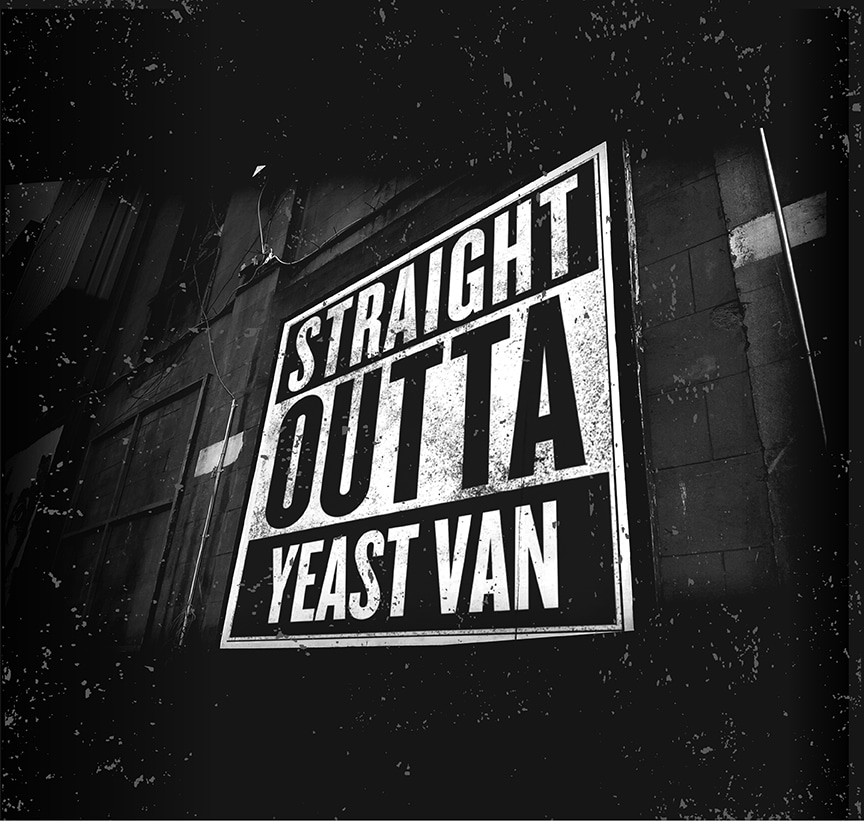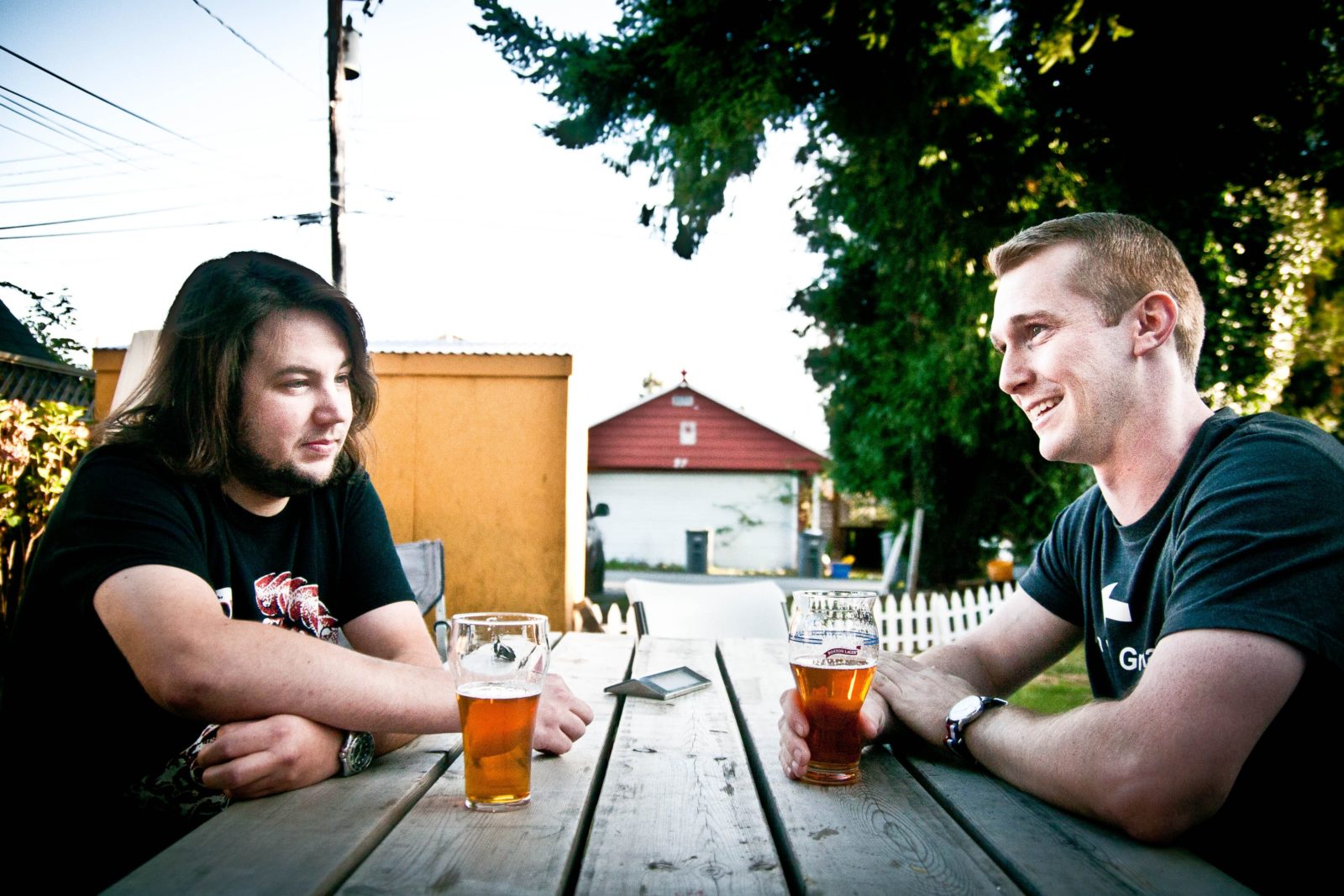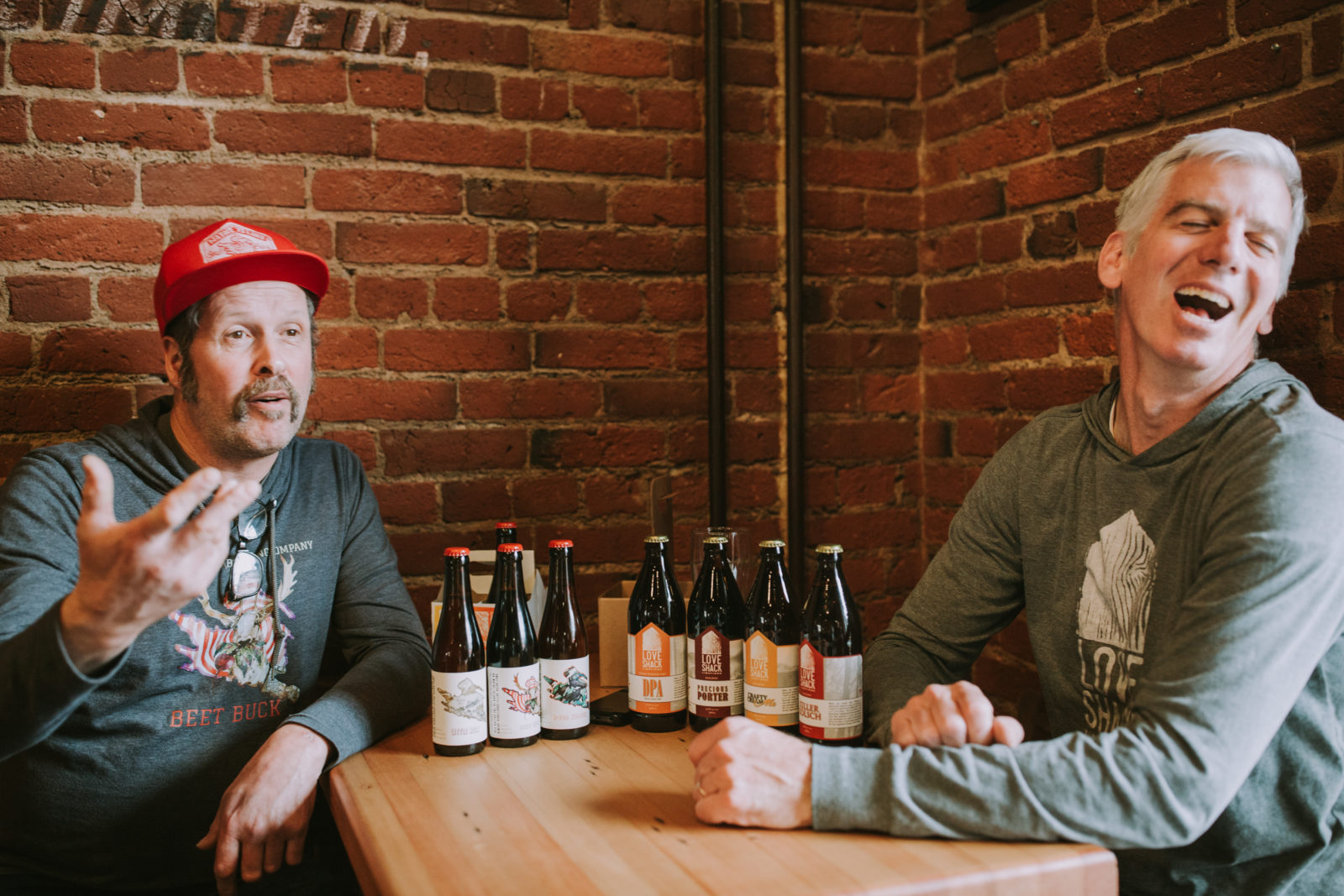
Some people start breweries for the money. For others, it’s all about the beer.
And for nanobrewers like Michael Garratt of Mayne Island Brewing and Dave Paul of LoveShack Libations, it’s clearly because they’re masochists. What other reason could there be for someone with a full-time day job to open a one-person brewery that requires every waking moment of their time and attention? A brewery that’s so small that there’s probably no chance that it’ll ever become your sole source of income.
To listen to Garratt and Paul tell it, they actually enjoy the long hours, heavy lifting and time away from their families. It’s a good thing, because they make some pretty unique beers, and while nanobreweries like theirs might be a little off the beaten path, they are always worth the effort to visit.
I sat down with the owner/operators of two of B.C.’s smallest breweries at The Drake in Victoria recently to pick their brains about what compels them to abuse themselves for the sake of good beer.
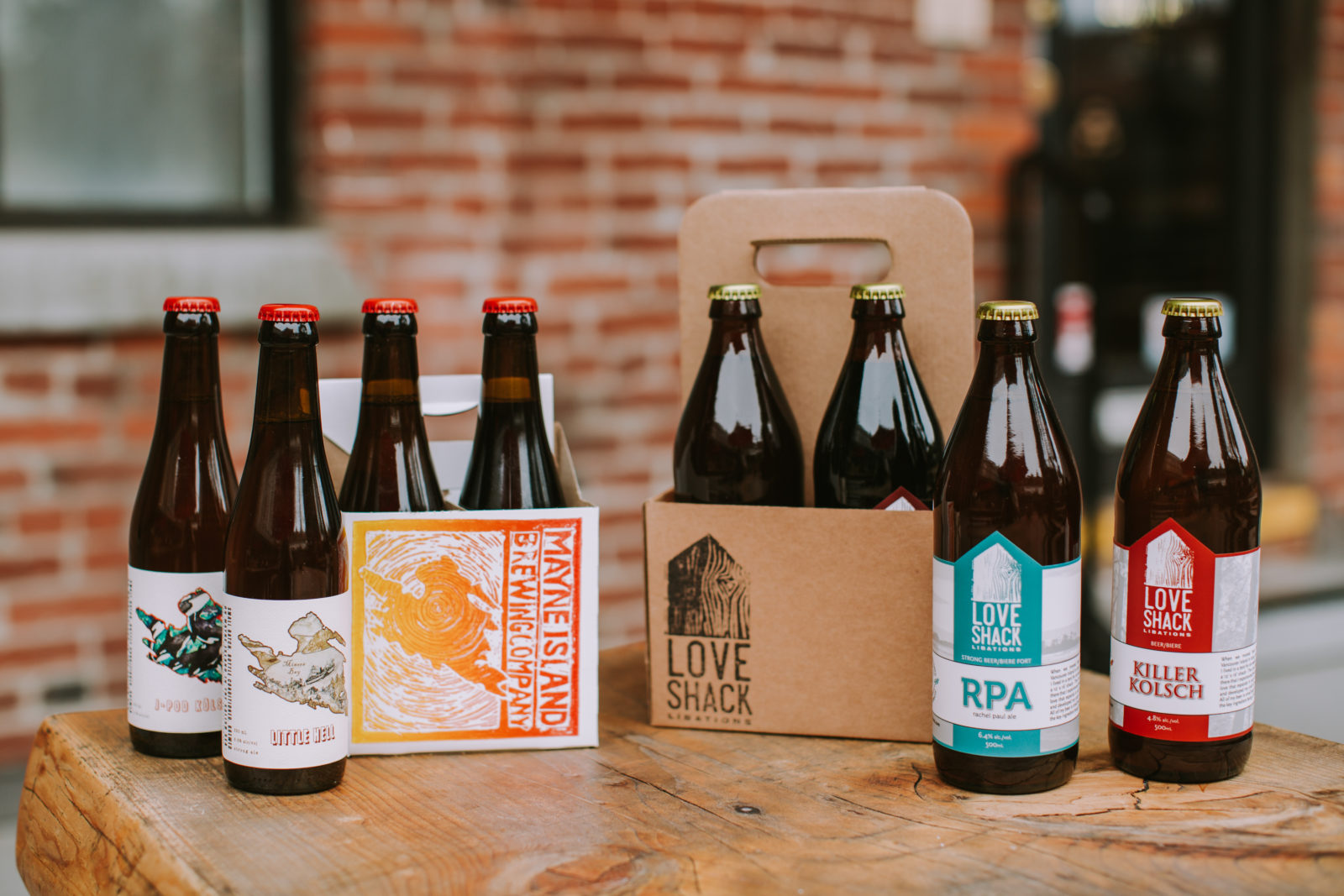
The Growler: My first question is why? Why would you do this?
Michael Garratt: It’s a midlife crisis. It was this or a sports car. But I love it! At the end of the week, you’re tired, and you still have so much to do, but I love it so much!
Dave Paul: It’s definitely a labour of love. It’s technically a second full-time job; I’ve worked 36 hours in the last three days.
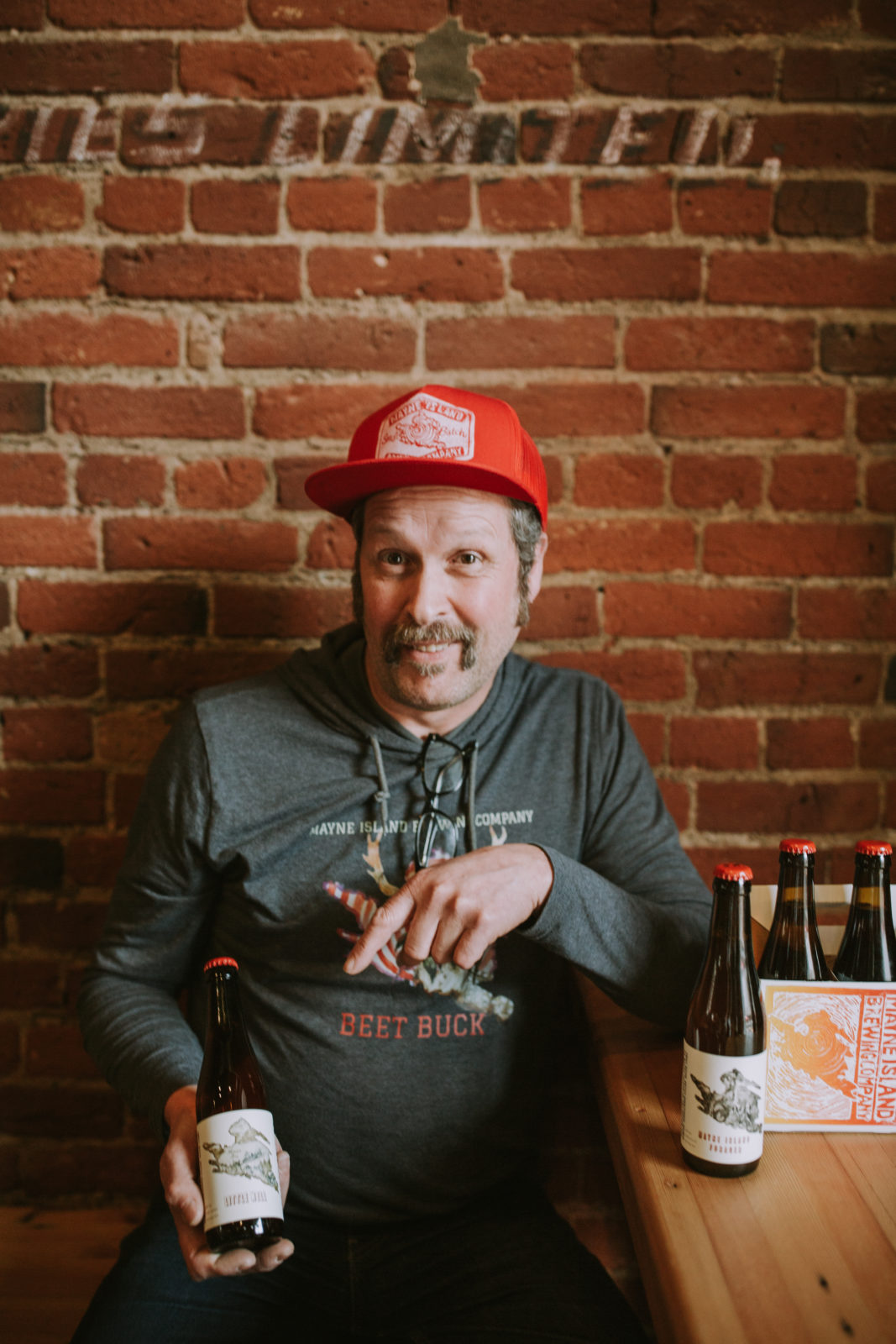
Growler: So how did you get into brewing?
Garratt: I started when I was 14, making cheap extract homebrew. I had some bottles explode in my mom’s cupboard so that was the end of it for a while, but my wife got me back into it about eight years ago. I sell wine for a living and we moved to Mayne Island about 13 years ago, so when I’d be in Vancouver, I’d stop at Dan’s [Homebrewing]. I would give my beers to clients in the restaurant at Christmas and people were telling me I should open a brewery. Mayne didn’t have a brewery or winery or cidery at the time, so since I’m a workaholic, I decided to open one. But it’s a family business. Without my wife and kids, I couldn’t do this.
Growler: What about you, Dave?
Paul: My mother-in-law got me a Coopers kit, and I did that for years and thought I was making good beer, until I went all-grain. That was like going from Betty Crocker to Martha Stewart. Eventually my wife said I should open a brewery, and at that point I was working 20 hours a week. We opened a year and three months ago and we’ve been busy, busy, busy ever since.
Growler: How much beer are you guys producing?
Paul: I did 142 brews in the last year and bottled 29,000 bottles. By hand.
Garratt: I’m about the same. I’m brewing three or four times a week. In 16 months, I’ve done about 175 brews and 40,000 bottles.
Growler: How big is your system?
Garratt: I’ve got a 45-gallon [170L] Blichmann system, gravity fed.
Paul: I have a 100 litre capacity.
Growler: That’s not much bigger than a home brew system. When you’re that small, are there some things you can do that bigger breweries can’t?
Garratt: Absolutely, our Forager series, for example. We can forage for stuff right on our doorstep, so put different ingredients in it each time we brew it. We’ve done salal berry, stinging nettle, blackberries, rosehips. A big brewery wouldn’t be able to do that, because they would need a huge volume.
Paul: It’s great for hop availability, because you’re always buying in small quantities. You can have more variety, too. I’ve done 25 different beers in the last year.
Growler: Do you have any aspirations to grow beyond where you’re at now?
Paul: Everyone is asking me if I’m going to expand, but I want to work less.
Growler: What’s different about the experience at a nano? What would change if you got bigger?
Paul: It’s all about character, that’s what makes a nano. There’s so much love that goes into each batch. If we expand, we’re going to lose that personal touch. We’re selling a personal experience; people want to hangout with the guy who made their beer.
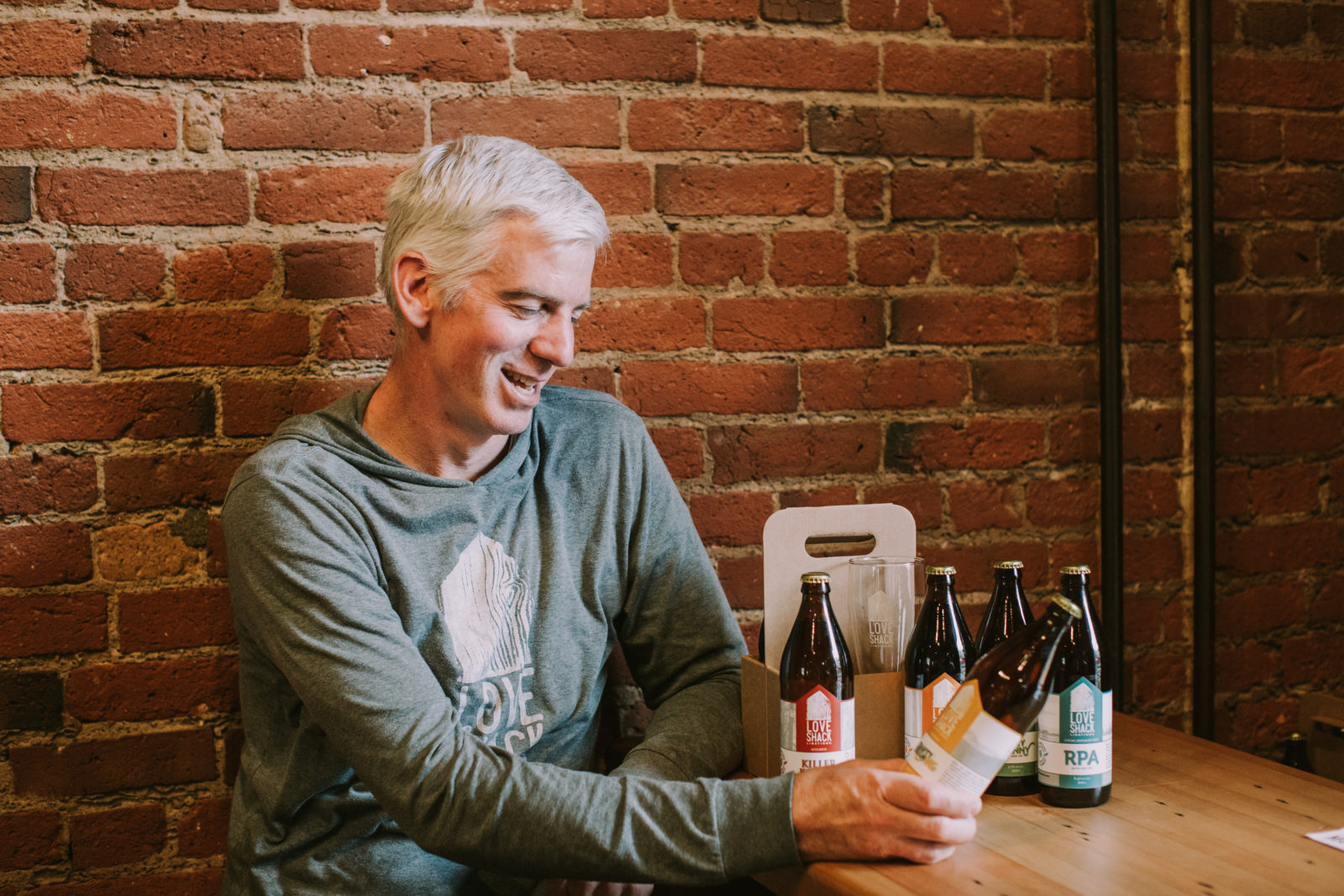
Growler: What are some of the difficulties with brewing on such a small scale?
Paul: When you’re brewing, it’s just you, you’re a one man show. While you’re waiting for your water to boil, you’re labeling bottles. And you have to do all the cleaning yourself. But I’ve got things down to a routine now, I can brew and bottle in eight hours.
Garratt: We learn to do things very differently from the big guys, but they run into the same problems we do, just bigger in scale.
Paul: Finding equipment that’s the right size is difficult. There’s not a lot available between home brew-sized set-ups and eight-hec brewpub systems.
Garratt: There are restrictions. Everything I use, I bring that over to the island myself. But I’m over every week for work, so I’m always bringing back bags of this and that with me.
Growler: What do your families think about this?
Garratt: They’ve been very supportive! It’s a family business. Without my wife and kids, I couldn’t do this.
Paul: Both my wife and daughter have done their fair share of bottling. My wife does the books, I couldn’t do this without her.
Growler: How important has it been to get the community on board with what you’re doing?
Garratt: There’s only 1,000 people on Mayne, so we really rely on the community and the weekenders.
Paul: Yeah, the community support has been unbelievable for us. On Wednesday nights, 90 per cent of the customers are the same people, week after week. Out tasting room is only open eight hours a week, but we sell nearly our beer there, we’re only in one liquor store and a couple restaurants. On Saturdays, it’s lined up out the door.
Growler: Are you ever going to quit the day job?
Paul: As a business model, we’re making money, I’m able to pay myself a bit each month. But I’m still working two nights a week at the [Parksville Beach Club Resort], and I don’t think that will change any time soon.
Garratt: We’ve put everything back into the brewery. I haven’t paid myself anything yet. I don’t think I’d be able to support a family of four on this.
Paul: If you don’t love brewing, don’t open an nano!


